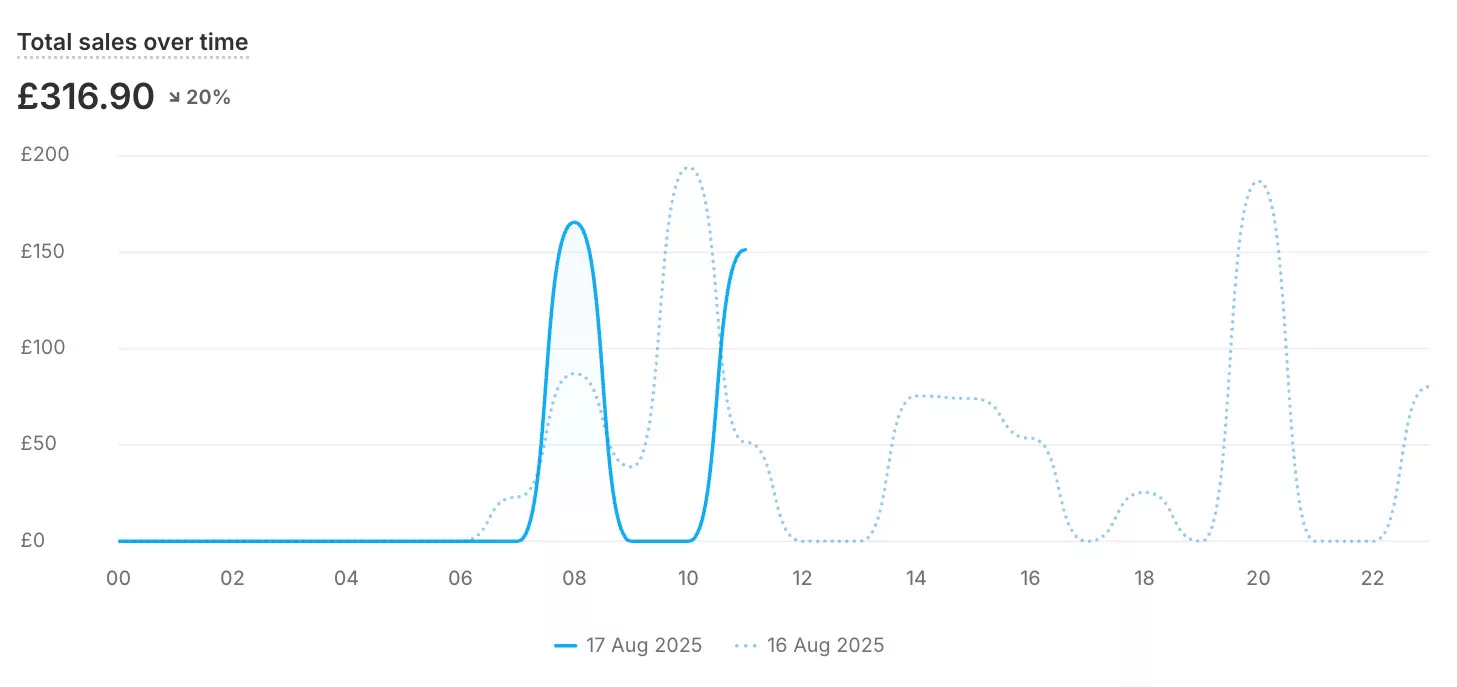What to Do When Business Is Slow: 7 Habits That Helped Me Keep Growing
Every business has quiet periods. Whether you run an online store or a service-based business, sales dips can feel stressful and unpredictable.
If you’ve been wondering what to do when business is slow, you’re not alone. When I ran my own party business, I had weeks where sales slowed right down. Covid made it even harder, with stretches where orders were few and far between. I used to panic, overthink, and change too much too quickly.
Over time, I learned that the most effective way to get through slow sales was to focus on what I could control. That shift in mindset made a huge difference, and it’s something any business owner can apply.
These seven habits gave me practical actions to take during quiet weeks. They work whether you want to increase sales during slow periods, prepare for busy seasons, or simply keep your business moving forward.
1. Start your day by looking at your own business first
When sales are slow, it’s tempting to scroll social media and compare yourself to competitors. Instead, start your morning by looking at your own website and homepage.
Ask yourself
-
Does my homepage clearly show what I offer?
-
Are my featured products or services the right ones for right now?
2. Ask what customers need to hear right now
If ten customers visited your business today, what message would help them buy? Once you know, make sure that message is front and centre.
- For product-based businesses, this could mean updating your homepage banner or featured products.
- For service-based businesses, it could mean changing your headline or adding a limited-time offer.
You can use a free tool like Hotjar to see where customers are clicking and which parts of your site they are missing.


3. Understand your sales patterns
The more you understand your own sales trends, the easier it is to prepare for them. Look at your sales reports in your ecommerce platform or Google Analytics to see when your busy and quiet periods fall.
Use slow periods to:
-
Refresh your most-visited website pages.
-
Create seasonal marketing campaigns.
-
Prepare new products or service offers.

4. Stick to your plan
Quiet weeks can make you feel like you need to overhaul everything. Resist that urge. Constantly changing your marketing strategy makes it harder to measure what’s working.
Instead, follow your sales and content plan. Make small, intentional changes that align with your overall strategy.

5. Make marketing enjoyable again
When business is slow, it can be hard to feel motivated. Find ways to make it fun.
Some ideas:
-
Refresh product photography
-
Share behind-the-scenes videos
-
Create a “customer favourites” or “staff picks” section on your website
-
Launch a mini bundle or limited-edition product
The more you enjoy creating content, the easier it is to stay consistent, which is key for business growth.

6. Plan updates in advance
Slow sales often bring stress about what to do next. A simple way to prevent this is to plan updates ahead of time.
Ask yourself
-
Homepage layout changes
-
Promotional banners
-
Featured products or services
-
Seasonal offers
Tools like Trello make it easy to organise and schedule updates so you always have something ready to go.
7. Keep your normal routine
When sales slow, it’s easy to let healthy habits slip. Stick to your daily routine. Take breaks, get outside, and move your body.
A clear mind will help you spot opportunities to increase sales that you might miss if you’re stressed and burnt out.

Why these habits work for any business owner
These habits work because they give you control over your actions when sales feel unpredictable. They keep you visible, consistent, and ready for the next busy period. Slow seasons are a normal part of running a business. They are not a sign that your business is failing. Use the time to:
-
Improve your website SEO
-
Review your marketing strategy
-
Plan for upcoming campaigns
-
Build relationships with customers
By making the most of your quiet weeks, you set yourself up for long-term success.

